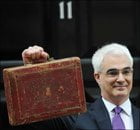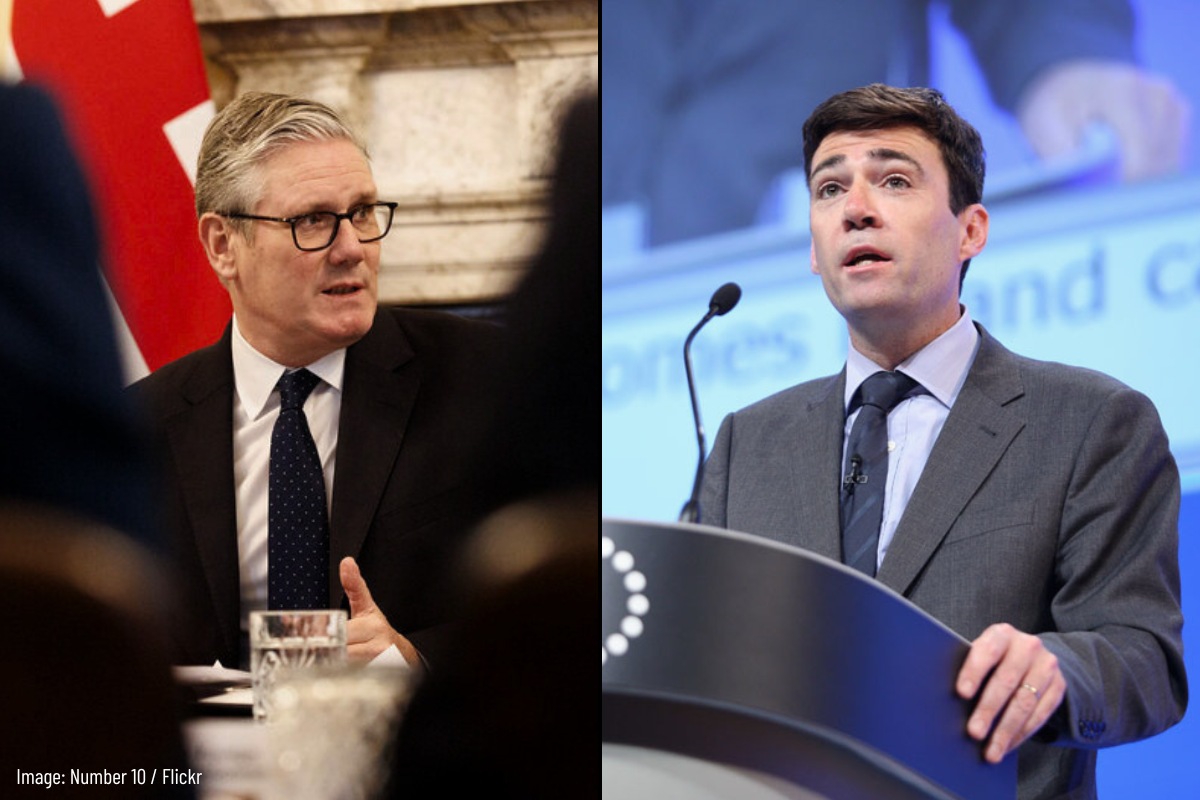During the summer much was made of Tory
leader David Cameron’s unfortunate use of the ‘T’ word during a radio
interview. One cartoonist later commentated that he would have got into more
trouble with the Tory hierarchy had he used a different four-letter word,
‘cuts.’ Cameron has gone out of his way not to give the impression that the
Tories will bring in massive public sector cuts should they win the next
general election. Indeed he has gone on
record as saying that the budgets for overseas aid and – more to the point –
the health service will be protected. Can we believe him? We think not.
The Labour government is planning to
borrow an additional £700 billion over a five year period, taking the national
debt to £1.4 trillion in order to fund the support being given to capitalism
and its banking system. Many are now speculating that the Tories will be
‘forced’ into carrying out a vicious programme of cuts to fund this rescue
package. Is this scenario to be taken
seriously? Despite the best efforts of Cameron and his advisers we can find
plenty of evidence from their own ranks to back this up.
Let’s start at
the top with shadow chancellor George Osborne, who weighed in during August
with his ‘thoughts’ on public services. Noting that, according to the World Economic Forum, the UK ranked 76th out of
134 countries in terms of ‘efficiency’ in public spending, he called for a
‘transformation’ in the ‘productivity’ of the public sector. What is this code
for? Well the Telegraph of the 11 August helpfully spelt things out for us in
their ‘View’ column:
‘…. He (Osborne) cannot avoid spelling out the hard
details of these reforms indefinitely… the Tories’ obsession with preserving
the sacred-cow status of the NHS should also be revisited.’ Just four days
earlier in the same column the Telegraph made their position clear. Having
noted the damaging effect that the PFI scam is starting to have on NHS finances
they then went on: ‘…the best way to restore our credibility and our
finances is to cut back the size and activities of the state… this will be a
painful process… no recent British government has managed to make serious cuts
in public expenditure. Even Mrs Thatcher, who was determined to reduce state
spending never succeeded: she merely slowed the rate at which it grew.’ (Telegraph
8 August 2009)
 Now maybe this is just the Telegraph
Now maybe this is just the Telegraph
going out on a limb, but let’s turn to the wit and wisdom of former Tory
leadership hopeful David Davis. In an article headed ‘We Tories will make your
eyes water’ he states rather off-message that ’It is an inescapable fact that
the next government will have to carry through some unpalatable changes.’ What
does this mean? ‘The Conservatives will have to challenge everything… there are
no sacred cows.’ In calling for a full review – involving contracting out and
straight cuts – he underlines that this process must include the ‘ring-fenced
areas’ such as the NHS. In passing he also calls for an end to universal
payment of child benefits and the winter fuel allowances to the elderly.
Any thoughts
that the NHS was not going to be targeted under the Tories have also been
further undermined by the statements of two Tory MEPs on US television
about how bad the NHS was. We have been warned.
Now are these just
the wild thoughts of a few Tory mavericks? Well apparently not. In a poll of
‘Right-leaning political insiders’ (who ever they are) conducted by the Daily
Mail during July they found out that ‘…
a large majority opposed Mr Cameron’s policy of protecting budgets for overseas
aid and health from cuts…. 81% of Tory frontbenchers, advisers and commentators
polled by the PoliticsHome website said they opposed this pledge.’ (Daily Mail
28 July) In a separate statement on Sky News the same day, William Hague added
that ‘a Conservative government will squeeze spending hard.
Maybe these
are just the views of a load of has-beens waiting to
be pushed out to the Golf courses of England by Cameron’s new broom?
Well let’s see what the Economist magazine had to say about this in August, in
the review of those new Tory candidates waiting to take up seats at the next
election: ‘Surveys of candidates in target seats by Conservative Intelligence…
reveal quite traditional views… social conservatisms is matched by right-wing
views on taxing and spending.’
Tories
traditionally look to cut taxes, for the rich anyway, yet this time they are
playing down any talk on tax cuts given the
severity of the situation. Indeed they have even started floating the idea of
increasing taxes in the form of raising the VAT rate to
20%. We should not be surprised by this. After all, Thatcher pushed up
VAT rates during her time in office since it is a tax which hits poorer people
most of all whilst big business can just claim the payments back. Tories are
not against taxes as such just those aimed at the rich. But even with this, it
is all too clear that the Tories will be looking to slash social spending to
make up the shortfall.
 And what a
And what a
shortfall it will be. In July, the Institute of Fiscal Studies published a
report stating ‘Britain is facing a decade of pain that will see the tightest
constraint in public spending since 1977’ (quoted in The Guardian 24 July 2009)
The IFS goes on to argue that spending in many areas will have to be cut by
16.3% over the period of 2011 to 2014 if funding on the NHS, education etc. is
to be protected. Both parties have already stated that Britain’s
fiscal deficit will have to be cut from 11.9% of GDP down to 1.3% by 2018.
Naturally the IFS report raises severe doubts about whether any such protection
can realistically be ‘afforded’ by the next government. In the Spectator
magazine of August 5th, Tory commentator Fraser Nelson went further
in spelling things out: ‘… Labour talk of ‘ten per cent cuts’ are outdated.
Cuts will have to be 15 per cent, perhaps 20 per cent, over three years.
Protecting the wasteful NHS from expenditure reform would concentrate pain on other less deserving areas. Yet
Mr. Cameron can easily escape this. He has not yet said how long health
spending will be protected. He should make it a year (if that) and then begin
the cuts.’ This is not a unique
position. Many other Tories think the spending pledge on the NHS and other key
sectors is, in their words, “crazy” and have called for it to apply to “frontline”
services only.
If they are
looking for get-outs on such politically sensitive areas as health and
education, what do they have planned for other areas of the public sector? We
should be clear; any government committed to capitalism will be looking to make
cuts so that the working class can pay for the bosses’ crisis. The Tories, once
they are safely in office, will set about this with relish. Just as Thatcher
took her revenge on the miners for helping to bring down the 1970-4 Tory government, so Cameron and his gang will be looking to
attack the public sector to take revenge for the three election defeats since
1997.
However,
least anyone should say that Mr. Cameron is, after all, telling the truth,
let’s turn to the evidence already
before us in the form of those Tories already in power in councils up and down
the land. According to a report in the FT of August 11th:
‘Leading
Tory councils are rethinking the provision of local public services including
parks, libraries, and street cleaning, as they confront a severe squeeze on
public spending of up to 20 per cent in the years ahead. Radical cost-cutting
proposals by Conservative-controlled councils such as Barnet, Essex, and
Hammersmith and Fulham are refuelling the Thatcherite debate about the role of
the state and could provide a national blueprint for an incoming Conservative
government.’
The article goes on to quote Tony Travers from the LSE as saying:
“There is a wing of Conservative thought that has
never gone away… the public spending crunch will give them wind in their sales
and give them the opportunity to be more radical.” In the language of modern
bourgeois politics, “reform” means “counter-reform” and “radical” means
“reactionary.”
Tory councils have also raised the idea
of abandoning national pay awards, freezing or even reducing pay and going over
to a system of pay by results – a miserable system used in the private sector
to split the workers and get them to accept poor pay awards.
 So we can see
So we can see
by their deeds as well as their words that the next Tory government, if they
are elected, will have no problem with bringing in massive cuts. This is the
sad legacy of the Blair – Brown governments and their failure to break with
capitalism. Such a likely assault by the next government on social spending and
public sector workers will need to be resisted with maximum force and maximum
unity. Already the Tories are hard at
work preparing the ground by talking about the public sector in terms of
“Wastefulness” “Bureaucrats” “Over-paid” and so on. The movement will need to
make clear to people at large just what the real social consequences of these
cuts will be and why they must be resisted.






